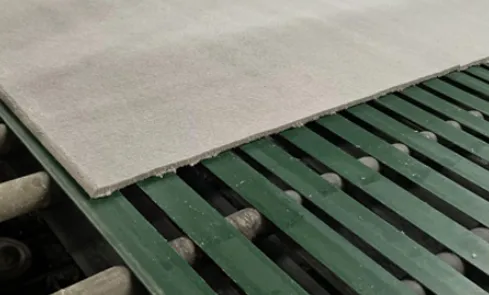Dec . 26, 2024 15:17 Back to list
Mineral Fiber Ceiling Planks for Enhanced Acoustic and Aesthetic Solutions
Understanding Mineral Fiber Planks Benefits and Applications
Mineral fiber planks have become increasingly popular in construction and architectural projects due to their unmatched combination of durability, versatility, and aesthetic appeal. Engineered primarily from natural minerals and recycled materials, these planks are an excellent sustainable choice for various applications, especially in commercial and industrial settings.
What Are Mineral Fiber Planks?
Mineral fiber planks are composite materials primarily made of mineral-based fibers, binders, and sometimes additives that enhance their performance. The most common minerals used include gypsum, calcium silicate, and various types of rock fibers. These materials undergo a sophisticated manufacturing process that transforms them into lightweight, fire-resistant, and acoustically efficient planks.
Key Benefits of Mineral Fiber Planks
1. Fire Resistance One of the standout characteristics of mineral fiber planks is their exceptional fire resistance. Unlike traditional wood or certain synthetic materials, mineral fiber does not combust easily. This quality makes mineral fiber planks extremely valuable in environments where fire safety is paramount, such as commercial kitchens, schools, and hospitals. Building codes often require fire-resistant materials in such settings, and mineral fiber planks meet these stringent regulations.
2. Acoustic Performance For projects that necessitate sound control, mineral fiber planks are often the preferred choice. Their dense structure effectively absorbs sound waves, reducing noise pollution and creating a more pleasant environment. This feature is especially beneficial in open offices, conference rooms, and classrooms, where noise levels can hinder communication and focus.
3. Thermal Insulation Mineral fiber planks offer excellent thermal insulation properties. They can help maintain comfortable indoor temperatures by reducing heat transfer, which can lead to lower energy costs for heating and cooling. This is an appealing feature for both residential and commercial buildings, contributing to energy efficiency and sustainability.
4. Moisture Resistance In humid conditions or areas prone to moisture build-up, mineral fiber planks exhibit notable resistance to water damage. Unlike traditional wood materials, they do not warp, swell, or rot when exposed to high humidity levels. This characteristic extends their lifespan and reduces maintenance costs, making them ideal for basements, bathrooms, and other high-moisture environments.
mineral fiber planks

5. Ease of Installation Mineral fiber planks are designed for quick and efficient installation. They can be easily cut and manipulated to fit various designs and configurations, streamlining the building process. Their lightweight nature also means that less labor is needed for handling and installation, which can result in cost savings for construction projects.
Applications of Mineral Fiber Planks
The versatility of mineral fiber planks allows them to be used in various applications, including
- Ceilings Often used in commercial interiors, mineral fiber ceiling tiles offer sound absorption and aesthetic versatility. They come in numerous designs, textures, and colors, allowing architects and designers to create visually appealing spaces that also function efficiently.
- Wall Panels For added acoustic control and thermal performance, mineral fiber planks can be employed as wall panels in office spaces, auditoriums, and performance venues.
- Partitions Mineral fiber planks can be utilized as lightweight, non-load-bearing partitions, providing sound insulation while allowing for flexible space configurations.
- Exterior Applications Some mineral fiber products are treated to withstand the elements, making them suitable for exterior use in cladding and facades, especially in urban environments.
Conclusion
In conclusion, mineral fiber planks represent an intelligent choice for modern construction and design, balancing aesthetics with functionality. Their inherent properties—such as fire resistance, sound absorption, thermal insulation, and moisture resistance—make them suitable for diverse environments. As sustainability becomes increasingly important in building practices, the use of eco-friendly materials like mineral fiber planks will continue to grow, offering an opportunity for builders, architects, and homeowners to contribute positively to the environment. Whether for a commercial or residential project, mineral fiber planks are a resilient, versatile, and sustainable solution that meets the evolving needs of the construction industry.
-
Durable Ceiling T Grid Systems | Easy InstallationNewsAug.29,2025
-
PVC Gypsum Ceiling: Durable, Laminated Tiles for Modern SpacesNewsAug.28,2025
-
Pvc Gypsum Ceiling Is DurableNewsAug.21,2025
-
Mineral Fiber Board Is DurableNewsAug.21,2025
-
Ceiling Tile Clip Reusable DesignNewsAug.21,2025
-
Ceiling T Grid Modular DesignNewsAug.21,2025







